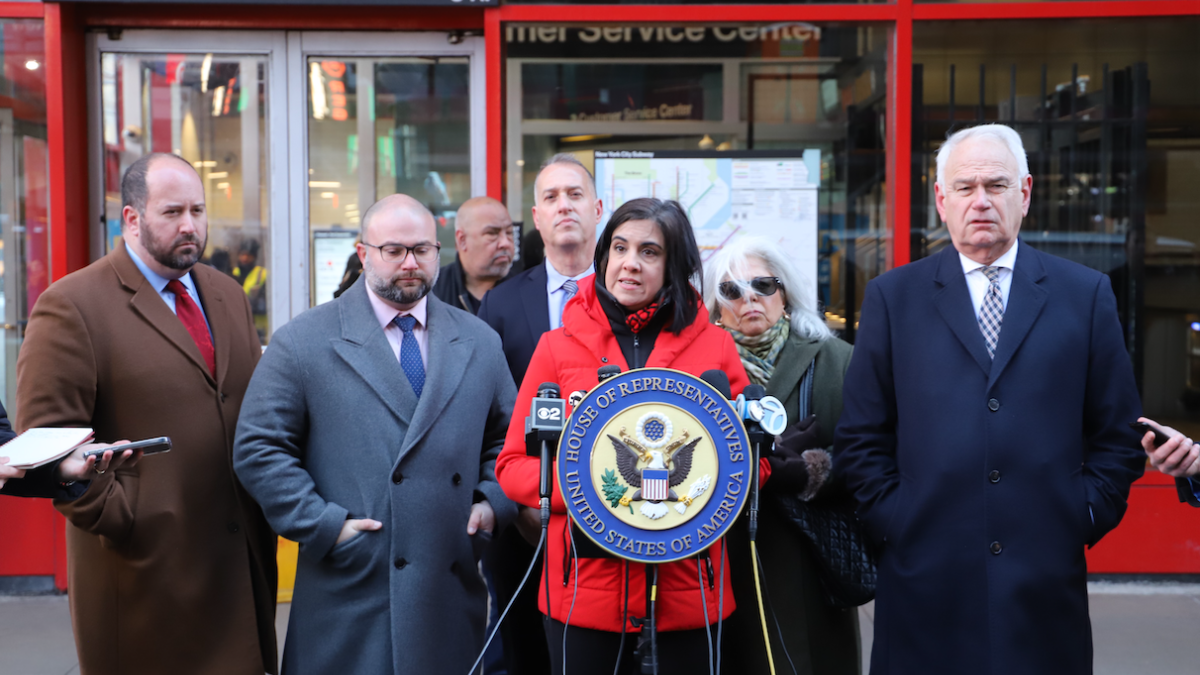GOP tax bill will clear Senate 95% intact, House chairman predicts
House Ways and Means Committee Chairman Jason Smith (R-MO) has expressed confidence that the GOP tax and spending legislation, known as the “One Big Beatiful Bill Act,” will mostly remain unchanged in the Senate, predicting that 95% of it will survive. Despite the Senate’s discussions around potential major revisions, Smith, who has collaborated closely wiht Senate Finance committee Chairman Mike Crapo, believes only minor adjustments will be necessary. Tensions exist between different factions in the Senate, as some members advocate for spending cuts while others seek the retention of clean energy tax credits.
The House recently narrowly passed the $4 trillion reconciliation bill, a feat complicated by the slim Republican majority. Internal negotiations revealed divisions among GOP members, notably regarding the SALT (state and local tax) deduction cap, with some success in raising it. Smith emphasized the importance of balancing various interests to ensure the bill’s passage. He cautioned that both chambers must finalize the reconciliation bill by the year’s end to avert tax increases set to occur with the expiration of the 2017 tax cuts. Smith remains optimistic that both the House and Senate will address the necessary adjustments to pass the legislation.
GOP tax bill will clear Senate 95% intact, House chairman predicts
Exclusive — House Ways and Means Committee Chairman Jason Smith (R-MO) thinks that the overwhelming majority of the GOP tax and spending legislation will survive the Senate, contrary to suggestions from Republican senators that the bill will have to undergo major changes to pass the upper chamber.
In a phone call, Smith, who was in charge of passing the tax portion of the reconciliation legislation, the One Big Beautiful Bill Act, told the Washington Examiner that he expects only marginal changes from the Senate, which now will consider the bill following its passage in the House last week.
Smith said his team has been working “hand-in-glove” with Senate Finance Committee Chairman Mike Crapo (R-ID) on the legislation for months. He said the majority of what is in the House bill is not a surprise to the Senate.
“Of course, I’m sure that there will be some changes made over there, and probably will make the bill an even better bill,” Smith said. “But I would say 95% of the current bill will be intact. I think you’ll see a few things changed around the edges.”
Smith’s comment is at odds with calls from members of the Senate to change the bill. Some fiscal conservatives in the upper chamber have called for adding spending cuts to the measure. Centrists, on the other hand, have said they would like to remove certain cuts to clean energy tax credits. Altogether, the various demands would necessitate a major reworking of the bill. However, Smith said he is optimistic about the legislation being held up in the coming weeks.
Still, Smith said it is crucial to strike the right balance. He noted the difficulty Republican leadership had in passing the reconciliation legislation in the House with such a narrow GOP majority.
The House voted last week to pass the $4 trillion reconciliation bill, 215 to 214. No Democrats joined Republicans in voting for the legislation. Two Republicans, Reps. Thomas Massie (R-KY) and Warren Davidson (R-OH), voted against the bill, while a third, Rep. Andy Harris (R-MD), voted present, citing deficit concerns.
Two Republicans didn’t vote: Reps. Andrew Garbarino (R-NY) and David Schweikert (R-AZ).
“And they have a larger majority than us,” Smith said of the Senate GOP. “So it’s just you got to find that even balance. And I think that we struck a pretty good balance in the House, and it’s a good product for them to just improve.”
The House’s margins made negotiations within the Republican Party challenging because just a few holdout votes could force changes to the legislation. The GOP majority is one of the slimmest in modern history. Notably, in 2017, when the Tax Cuts and Jobs Act was being negotiated, Republicans could afford to lose several votes and still pass the measure, making negotiations easier than this time
Several factions formed to make specific demands that threatened key features of the legislation, and House Speaker Mike Johnson (R-LA) held court in his office to negotiate compromises. One of the most vocal groups of holdouts, perhaps the biggest winners of the talks, were Republicans pushing for a higher cap on state and local tax deductions.
The SALT Republicans, calling themselves the SALT caucus, had been pushing to raise the $10,000 SALT cap imposed as part of the 2017 overhaul.
Members of the group, including Reps. Mike Lawler (R-NY), Young Kim (R-CA), and Nick LaLota (R-NY), were able to quadruple the current $10,000 cap to $40,000, subject to a $500,000 income limit.
The concession was unpopular with fiscal hawks and rank-and-file Republicans in low-tax states. It faces uncertain prospects in the Senate, where there are no Republicans from the highest-tax states.
Smith said that Republicans in the Senate are well aware of how important raising the SALT cap is to certain members. He said the senators also understand that getting the overall bill across the finish line is crucial to prevent the individual tax cuts enacted by the 2017 legislation from expiring, as they are set to do at the end of the year.
“I’ve said all along, people have to give and take,” Smith said. “And what I do know is that the Senate wants permanency of the expiring provisions of TCJA, and the only way that they get permanency is if we pass a reconciliation tax bill.”
Rep. Claudia Tenney (R-NY) is on the Ways and Means Committee, but was not part of the SALT cap push. Her district is quite rural and agrarian, so the issue isn’t as important for her constituents as it is to those closer to New York City. During a phone interview with the Washington Examiner, Tenney pointed out that raising the SALT cap largely benefits the wealthy.
The $40,000 offer came after the caucus initially rebuffed a proposal from leadership to increase the $10,000 SALT cap to $30,000 for married couples and set an income limit of $400,000.
“We thought we got an excellent deal for the SALT caucus, which they were not satisfied with,” Tenney said.
Alex Conant, a GOP strategist and a partner at Firehouse Strategies, said that while nothing is off limits when it comes to the Senate making revisions to the megabill, lawmakers are aware of the precarity of negotiations on the House side.
Conant said changes to SALT provisions in the Senate were likely to be tweaks rather than wholesale changes. For example, he said that the Senate might rework provisions in the House bill that would take away business SALT deductions from certain small businesses that file through the individual side of the tax code.
Still, some senators foresee more sweeping changes.
“The Senate will change it significantly,” said Sen. Ted Cruz (R-TX).
The fiscal hawks were another faction in the House that dug its feet in during negotiations. Many fiscal conservatives called for deeper spending cuts to offset the revenue reductions from the tax cuts portion of the legislation.
And Senate Majority Leader John Thune (R-SD) could face similar roadblocks as the bill gets a fresh look in the Senate.
Sen. Ron Johnson (R-WI), one such hawk, said he would vote against the reconciliation package unless it contained many more spending cuts.
“It’s a lot easier to pressure House members than it is us; that’s just a basic fact,” Johnson said.
Still, the House and Senate need to pass a reconciliation bill by the end of the year because, if they don’t, most Americans will see their taxes go up when the 2017 tax cuts expire, spelling a political disaster for President Donald Trump and Republicans.
PERMANENT LOW RATES WOULD GIVE GOP EDGE IN TAX WARS
Conant said that he is confident that both chambers will get there by the deadline.
“The Senate is not going to let the tax cuts expire,” Conant said. “And they recognize that the House bill is the result of a lot of negotiating and arm-twisting.”
" Conservative News Daily does not always share or support the views and opinions expressed here; they are just those of the writer."




